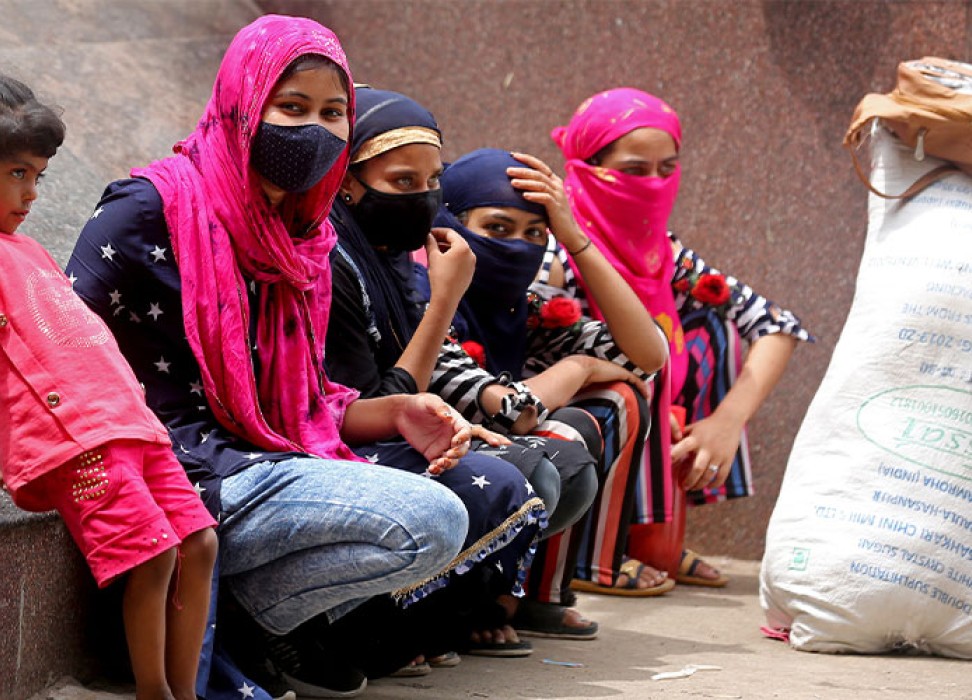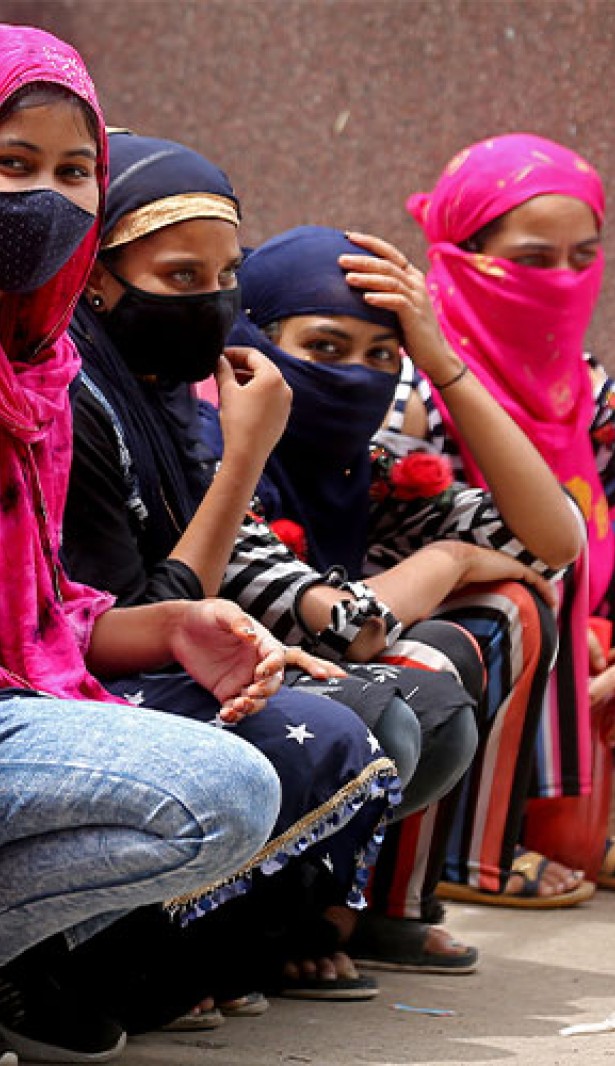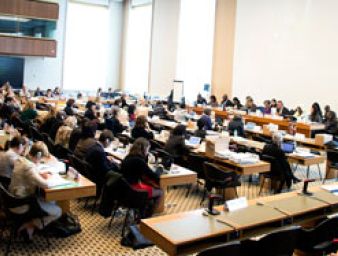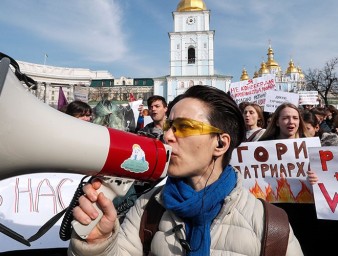We must prioritize a gender-responsive recovery from COVID-19
27 July 2021

During the COVID-19 pandemic, more women lost their jobs than men, and many women who lost their jobs haven't returned to work, according to a recent report from the International Labour Organization (ILO).
Even a year and half after the pandemic, gender equality and women's rights continue to be negatively impacted due to a crushing public health and socio-economic crisis, said Michelle Bachelet, UN High Commissioner for Human Rights.
"The pandemic has hit the world in a context of rising economic inequalities," Bachelet said in a video message during a panel on gender-equal socioeconomic recovery from the COVID-19 pandemic at the Human Rights Council. "Social and economic inequalities have been exacerbated, undermining women's economic security and resilience against shocks."
Bachelet offered steps for moving forward on recovering efforts such as prioritizing economic security of women facing intersecting forms of discrimination, recognizing the value of care work, ensuring women's equal rights and responsibilities in the family, protecting civic space and the participation of women and girls; and ensuring their access to justice and remedies.
"The majority of socioeconomic COVID-19 responses adopted by States are surprisingly gender-blind, often failing to address the specific needs of women," she said.
In a video message, Mohammad Naciri, UN-Women Regional Director for Asia-Pacific, expressed his concerns for the unparalleled economic crisis that has hit more people working in the informal sector, the service industry and care work, where women are overrepresented.
"Women and girls have had to juggle these burdens and hardships as support and protection were restricted," he said. "Even before the pandemic, women in some Asia-Pacific countries did up to 11 times more unpaid care work than men each day – with an obvious impact on their opportunities for paid work. The pandemic has pushed this inequity to a breaking point."
Naciri suggested improving economic inclusion through equal pay, better job protection, equal distribution of care work, expand social protection for caregivers and informal unpaid caregivers at home, and provide targeted credit and investments in the care economy. He also pushed for flexible work options for women employees and cash transfers for low-income women and unemployed informal workers.
Even though women have been faced with the responsibility for health care and caregiving, women haven't been equally involved in strategic decision-making in the response to COVID-19, according to Mónica Zalaquett Said, Minister for Women and Gender Equity of Chile. Only 24 percent of the membership of national institutions created to respond to the pandemic are women, she explained.
To address this lack of participation, Zalaquett highlighted initiatives that have been introduced in Chile to address this participation gap. For example, the Covid Women's Council, made up of women from civil society, academia, the private sector, and the government, was convened to address issues related to the pandemic.
"We have strengthened our partnerships with the private sector, particularly with key sectors for economic reactivation, such as construction, mining and energy, among others, with whom we are working to increase the participation of women in these sectors," she said.
"A key pillar for equal recovery, is gender responsive financing." said Maria Alesi, a development practitioner from Uganda.
Gender responsive financing is not about funding small village projects for women, but about financing targeted at dismantling structures and system that create and reinforce inequality, she explained.
She highlighted the importance of ending the debt burden on middle- and low-income countries to release resources to invest in public services and social protection to drive gender equal recovery.
Alesi also urged policy makers to develop progressive tax regimes. Many current regimes have regressive impacts, placing the burden on low-income earners who are mostly women, she said. In Uganda, the government imposed a 12 percent tax on internet use, which will exclude many women from the access to information and opportunity, Alesi said. She appealed to policymakers to focus on taxing wealth and income, instead of individuals.
None of these measures, Alessi explained, can have any impact on gender equality if women worldwide don't have access to the vaccine.
"How can we talk about gender-equal recovery when women in middle- and low-income countries cannot access the single most critical technology for human continuity today?" she questioned.
Today, only 0.78 percent of the population in Africa have been vaccinated, she added.
Kateryna Levchenko, Governmental Commissioner for Gender Policy of Ukraine, emphasized the need for ensuring women's and girls' participation in designing and implementing a gender-responsive recovery plan. To ensure their participation, Levchenko underlined the importance of keeping up with international commitments on human rights and gender equality, cooperation with civil society, particularly with women and feminist organizations, multisectoral cooperation, and the use of temporary special measures, such as electoral quotas.
Millions of women have already lost so much, Bachelet said. For instance, in Latin America and the Caribbean, the pandemic has prompted a setback of more than 18 years in women's labor participation, she added.
"We must shift the recovery efforts now to stop setbacks in gender equality and to build more inclusive, just and prosperous societies," she said.
27 July 2021




